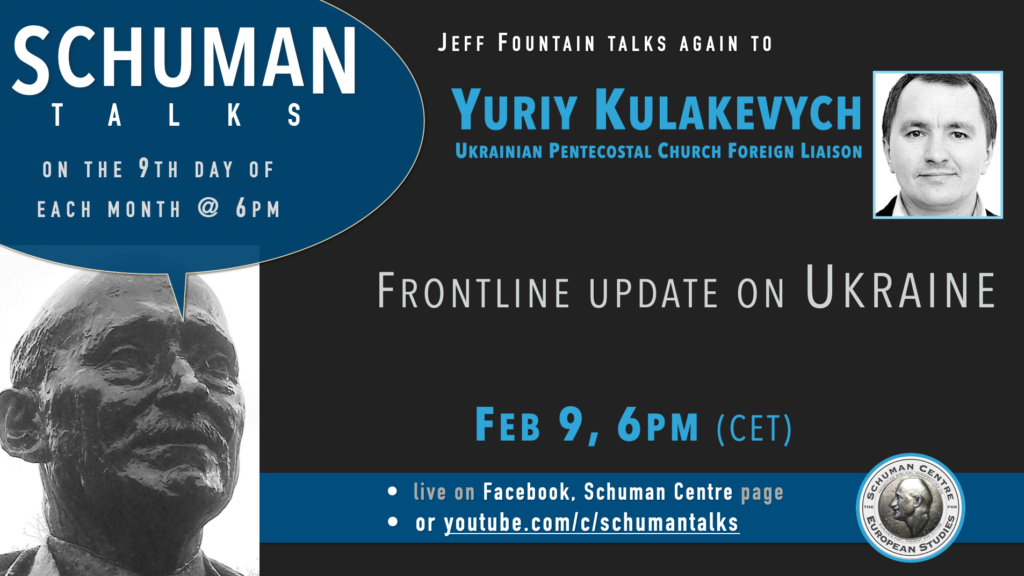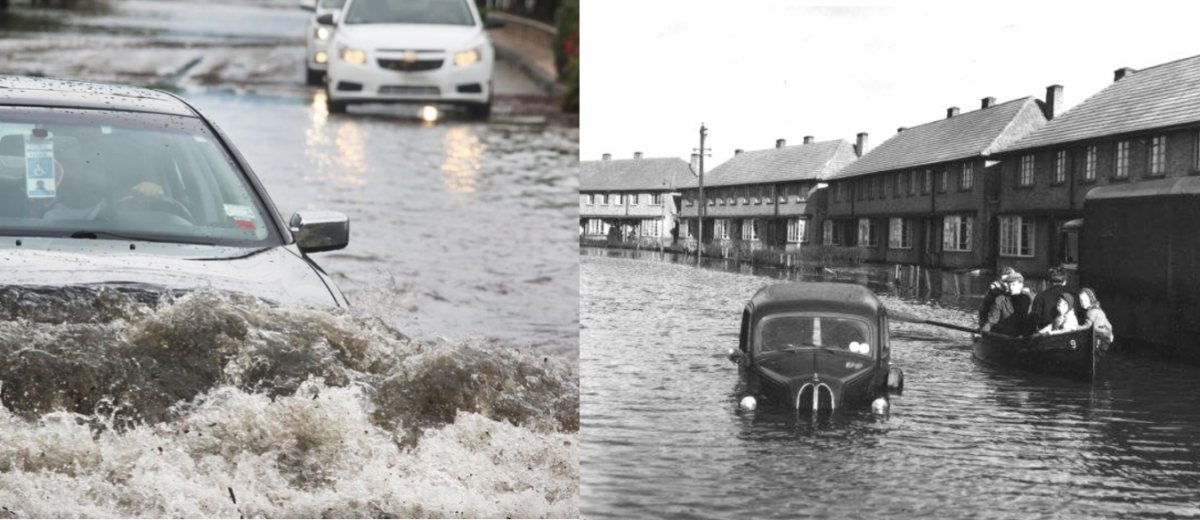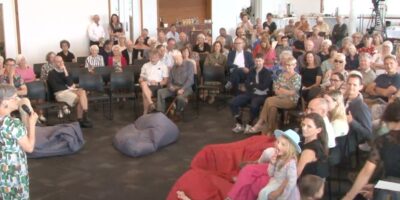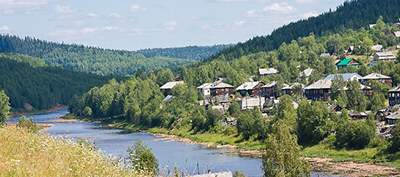Described by local papers as ‘biblical’, the torrential rain pelted against the corrugated iron roof as we sat down to dinner, having barricaded the doors with towels to prevent water seeping through under the doors.
The dinner remained largely uneaten. Suddenly we realised the waters were creeping right inside across the floor. Water bubbled up under the doors with loud gurgling sounds. As the old chorus went that we sang at Sunday school, the rains came down and the floods came up.
Nothing could stop the liquid invasion. Quickly it rose to 15cms all over the floor of the small apartment where my wife and I were staying, causing a rapid evacuation of clothes, bedding and equipment. We scampered with our hosts around the rest of the house salvaging what we could.
By now the whole back yard was one great lake. Across the fence, our neighbours looked helplessly out of their windows. The road out front had disappeared under the rising waters. Passing cars sent bow-waves surging through already flooded gardens. Water drainage systems were clearly over-taxed.
Later the picture emerged of the whole city of Auckland under deluge. Ticket-holders to an Elton John farewell concert, cancelled at the last minute, had to wade waist-deep to return to their soggy homes. Slips closed roads and threatened houses, eventually with hundreds of dwellings being abandoned as unsafe. One road we had travelled on just days before had totally slipped away.
Deluge
An ‘atmospheric river’ had dumped on the city, a ‘river in the sky’ carrying the equivalent outflow of a huge river. Auckland’s previous record rain level in one 24-hour period, 16.2cms, was totally eclipsed by last week’s deluge of 24.8cms!
Images we are used to seeing on television from faraway disaster zones unfolded now before our eyes. Neighbours, friends and family were all affected. For many, possessions, memories and properties were washed away.
In Auckland to celebrate my mother’s 100th birthday, my wife and I were experiencing an extreme weather event that scientists have been warning will be a regular part of our future. We’re told that one degree of warming translates to about a 20 per cent increase in rainfall per hour during an extreme weather event.
Temperatures today are apparently more than one degree warmer than they were when my mother was born. The eleven warmest years this past century have all occurred since 1980, with 1995 the warmest on record. We are presently on course for our planet to warm by 2.6 degrees by the end of this century.
Aucklanders have caught a glimpse of our possible climate future. Climate change is not just an issue for politicians and scientists. Communities everywhere must build towards resilience to a changing climate, and reduce emissions to zero.
Climate disasters are not new, of course. In another ‘biblical’ overtone, it was exactly seventy years ago this week when the worst flooding in Dutch memory washed away the dykes of Zeeland on the North Sea coast of southern Netherlands, submerging farmland, houses and townships under metres of water. A combination of a spring high tide and a heavy north-westerly storm, plus poorly organised dyke control, created one of the greatest natural disasters in Dutch history. Over 100,000 people were evacuated, 47,300 buildings were damaged, 30,000 livestock were killed, and 1,836 lives were lost. Nine per cent of the Dutch farmland – 340,000 acres – was flooded.
‘The dykes have broken!’
Romkje was five years old that morning when her mother was dressing her and her younger sister for church that morning while listening to the radio. With tears in her eyes, her mother pronounced that sentence every Dutch person dreads, ‘The dykes have broken!’
The flood was a wake up call. Determined to prevent a future disaster, the Dutch government spent four decades and five billion euros to build 16,500 kilometres of flood protection structures called the Delta Works. The risk of flooding was reduced to one in 4,000 years. Civil engineers have recognised Delta Works as one of the Seven Wonders of the Modern World.
What Auckland – and indeed the world – needs to do is to think like the Dutch, on even a grander scale, to safeguard the future. After years of COVID, and a year of barbaric war in Ukraine, no one needs their year to start with floods. Yet while we can list all the tragedies and horrors of the past year and wonder how bad this year will be, perhaps we should ask why more things don’t go wrong in our world.
After the devastating flood which almost wiped out the human race, God promised to Noah never to allow sin to get so out of hand as to destroy the world and humanity–at least until the divine purposes had been fulfilled.
The rainbow was to remind us of that promise.
P.S. Exactly a year has passed since I interviewed some Ukrainian friends, just two weeks before the outbreak of war. On Thursday, February 9, at 6pm CET, I will talk with Yuriy Kulakevych, the Ukrainian Pentecostal Church Foreign Liaison, about the situation in his homeland one year later: on YouTube.com/c/schumantalks

Till next week,



